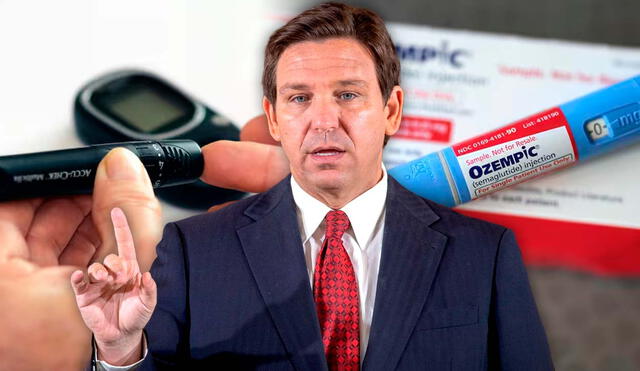Florida Governor Ron DeSantis signs HB 597: What changes are coming to Florida schools?
HB 597 aims to improve student safety by ensuring that glucagon is available for emergencies, streamlining the process for schools to obtain and store the medication.

Effective July 1, 2025, Florida public schools will be required to have new emergency protocols if a student has a diabetes related emergency under the newly signed HB 597 bill. The bill allows schools to maintain a supply of glucagon (medication) to treat severe hypoglycemia for students without immediate access to their own medications.
The HB 597 bill aims to improve the safety of students by ensuring that glucagon is available for emergencies and by simplifying the process for schools to obtain and store the medication. Moreover, the law plans to provide legal protections for those that administer the medication if an emergency occurs.

ALSO SEE: Dead rat in salad? NYC restaurant denies woman's discovery and offers a different explanation
Florida's new law: Key changes in school diabetes management
The HB 597 legislation allows Florida public school districts and public schools to keep undirected glucagon on-site, which indicates that it hasn't been assigned for a specific student. The overall intent is to get the drug available immediately when a student is in hypoglycemic crisis and cannot retrieve their dose because it is out of date or not available.
In the legislative analysis of the bill that passed, there are specific parameters implemented by the new regulatory framework that includes the following steps:
- Schools can request an annual glucagon prescription from a county health department or a licensed medical professional.
- An authorized pharmacist can dispense the medication on behalf of the educational institution, without it being prescribed for a specific student.
- Schools can obtain glucagon through agreements with manufacturers or suppliers, which may provide it free of charge, at fair market prices, or with discounts.
- Schools may receive monetary donations or apply for grants to fund the purchase of glucagon.
- The medication must be stored in a secure but immediately accessible location for trained personnel to administer.
- A trained school agent will be responsible for storing, monitoring, and administering glucagon following the manufacturer’s instructions and the student’s medical plan.
Florida's emergency protocol for Hypoglycemia under this new law
The laws describe the procedural steps for a Florida public school to take in a severe hypoglycemic incident, ensuring a student receives prompt care and informing his/her family. To summarize the law:
- The administration of undirected glucagon can only be performed in accordance with the diabetes management medical plan or by the written order from a practitioner.
- The employee must immediately request emergency medical services once medication is administered.
- The employee must also notify the school nurse; the student's parents or legal guardian; or the registered emergency contact.
The goal of this exercise is to ensure that no schools operate in a vacuum when considering a severe hypoglycemia emergency.
Historically, the availability of glucagon for use or inability to use glucagon because it was not prescribed for a student created impediments for ongoing and effective treatment, as explained in law.
How many Florida students with diabetes could benefit from HB 597?
According to data cited in the bill analysis, during the 2020-2021 school year, Florida public schools served 7,923 students with a diagnosis of diabetes: 7,006 with type 1 diabetes and 917 with type 2 diabetes.
Of the students with diabetes, over 3,300 required insulin during the school day. A similar ratio of students needed glucose monitoring or carbohydrate counting. These numbers illustrate both the size of the challenge and the need for effective school health policies.
The law does not affect the existing rights of students to self-manage their disease as long as they have medical and family approval, as prescribed by the rules of the state educational system. The law, rather, establishes acknowledgement of new institutional support when a student cannot self-medicate or does not have their diabetes kit when they require it.











